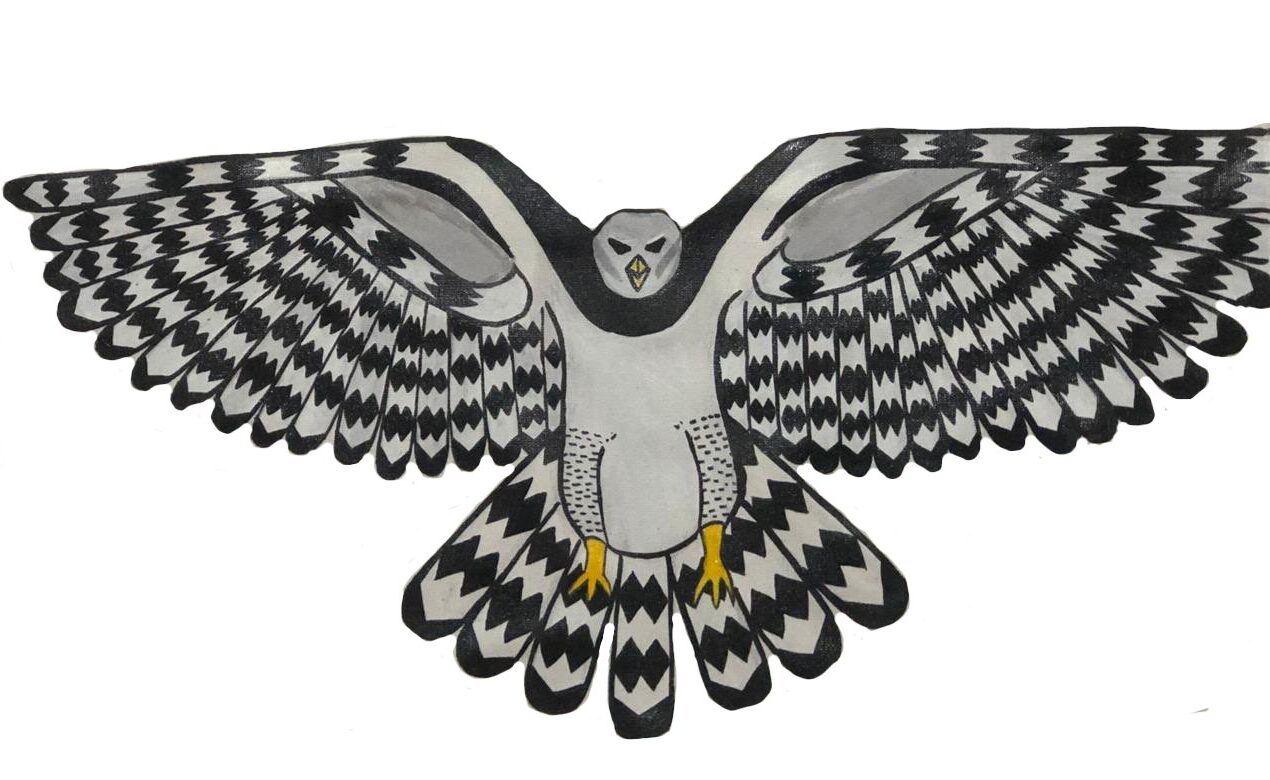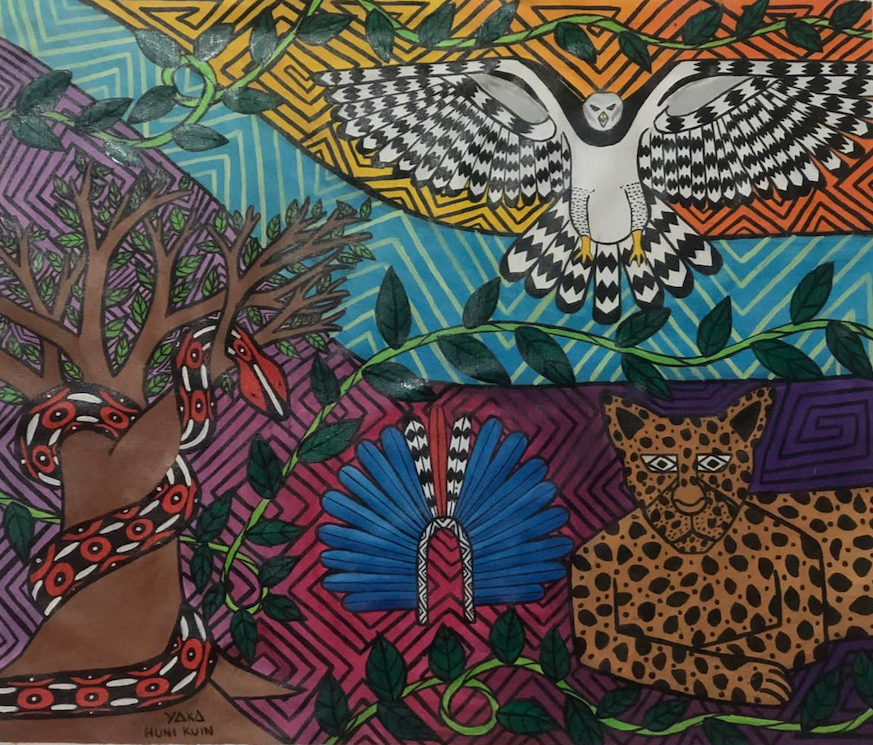
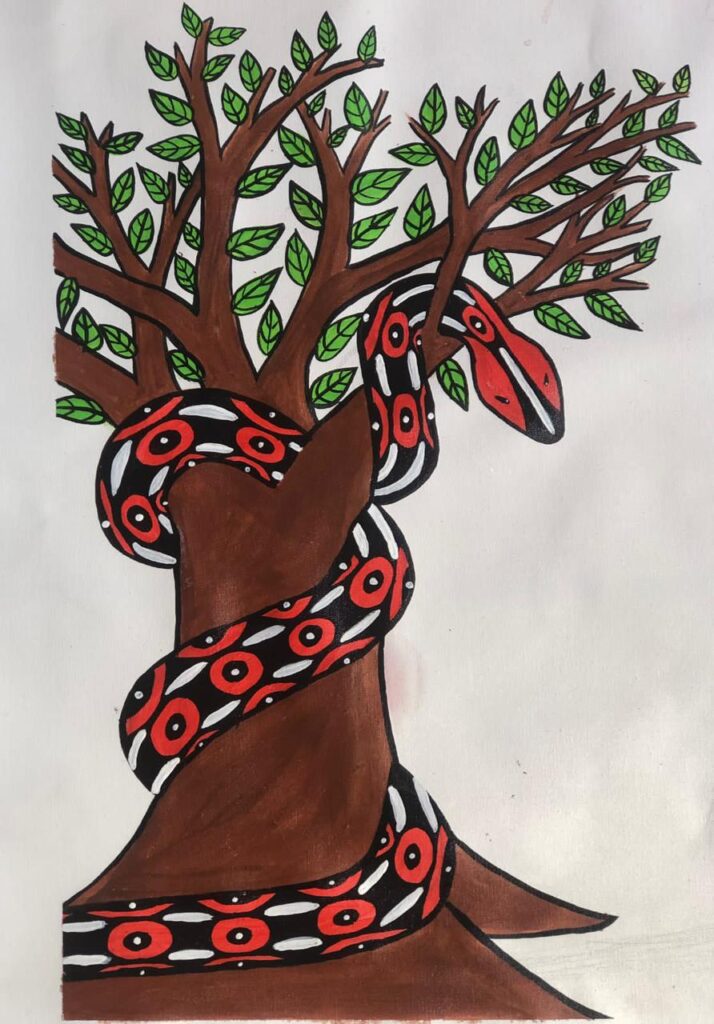
Our University
The University of the Forest represents the timeless tradition of intergenerational transmission of knowledge and wisdom among the Huni Kui People in Acre, in the Amazon, in Brazil. This unique eco-versity is the primary educational platform where the Huni Kui Indigenous People of Acre learn the subjects and teachings of the Amazon biome through sacred songs, dynamic designs, and regenerative stewardship practices. For more information, click here.
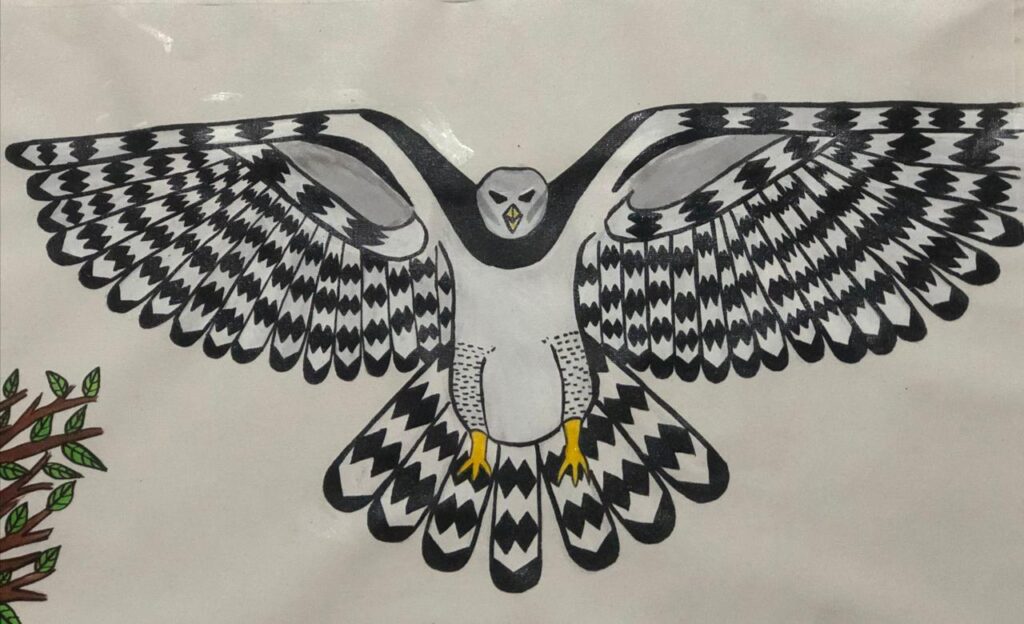
Relational Sciences and Technologies
Indigenous relational sciences and technologies of reverence, respect, reciprocity and responsibility towards the land have been developed since time immemorial by communal relations between human and non-human beings. They provide a powerful perspective, urging us to transcend the narrow intelligence of modernity focused on the maximization of profit and instead activate our capacity to access the metabolic and embodied quantum wisdom of the Earth itself, which we call “Yuxibu” in Hãtxa Kuĩ, our language. For more information, click here.
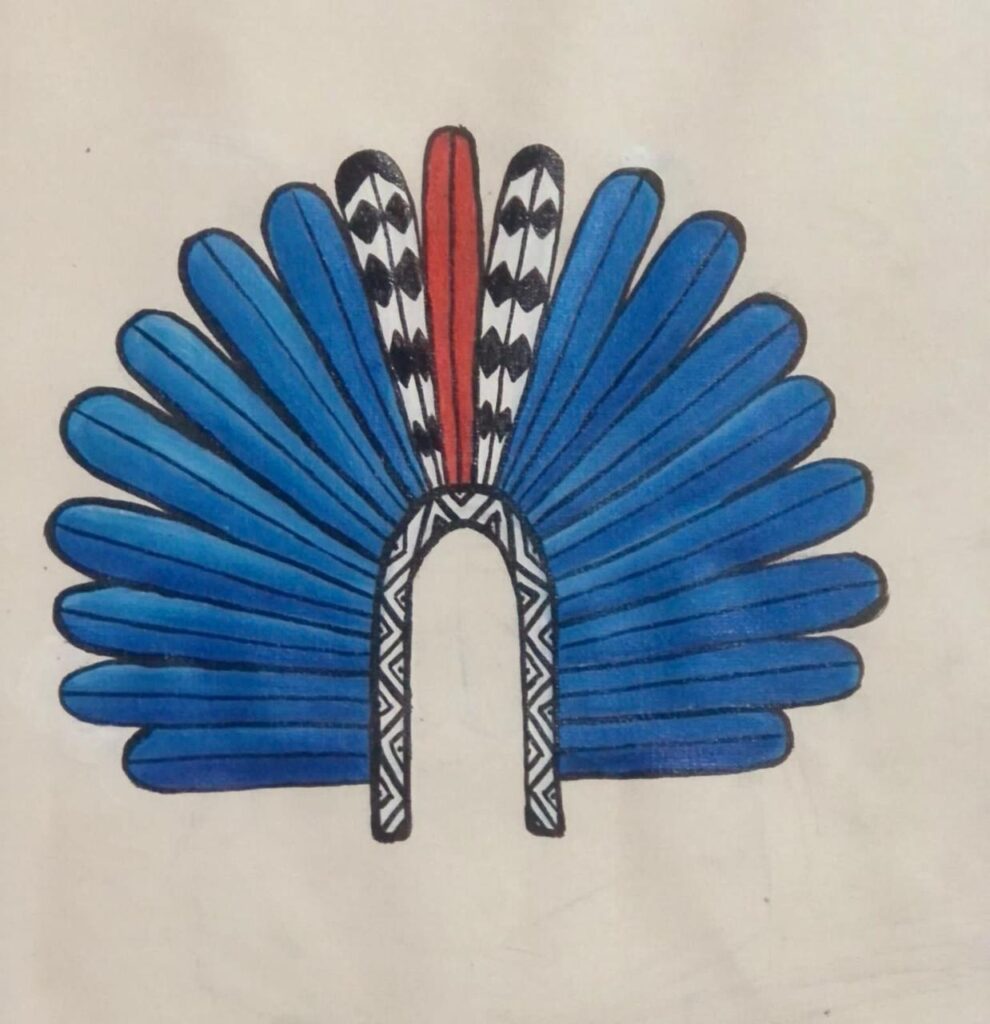
Global Partnerships For Climate Education
The Amazon is not only the lungs, but the kidneys of the planet. The Amazon biome is being threatened by a human disease that manifests as greed, arrogance, overconsumption and indifference. We partner with organizations internationally to co-design climate education that is critically-engaged, complexity-informed, contextually relevant and socially and ecologically accountable. For more information, click here.
The physical campus of the University of the Forest Huni Kui is is located between the Indigenous communities of Uskuyá Yuxibúon and Txanayá, on the banks of Rio Envira, one of the affluents of the Amazon river, around 12 hours by boat from the town of Feijó, in Acre, Brazil. This international campus (i.e. this website) is an immersive artistic and pedagogical experiment that was designed in close ongoing collaboration with the GTDF Arts/Research Collective. This partnership was originally supported by a research grant from the Social Sciences and Humanities Research Council of Canada in 2015. We are also grateful for the continuous support we have received from the Musagetes Foundation.
